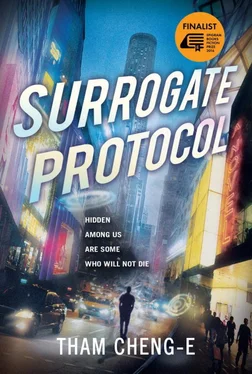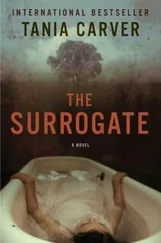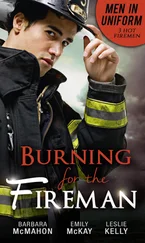From the lobby a man came bounding over, his face contorted in anguish. “There are people in the lifts!” the man told Robert in a hoarse croak. “The doors won’t open!”
“Good God almighty…” Robert tossed away the extinguisher and rushed over to the pair of lifts, trailed by Arthur and a few other men. Someone had brought tools: a wrench, pliers and a few screw-drivers.
When Robert and Arthur arrived, the descending fumes had already swallowed the left shaft. The car in the right-hand shaft hung stranded between the first and second floors, its grilles opened. But the inner set of doors remained closed, and the teary, desperate voices of the trapped, most of whom were women, coalesced into a muddle of screams and manic pounding.
There was hope nonetheless; the lower half of the car in the right-hand shaft was visible, and opening its inner doors just by a foot would allow sufficient passage. Someone yelled across the lobby for help, and Arthur heard something about a tourist and a pregnant woman. Aini. Dread closed its claws over Arthur’s heart. And where is Rachel ?
He inserted a screwdriver into the seam between the doors and Robert attempted the same. They pried and bent their tools in the process, but the doors grudgingly permitted only a quarter-inch gap and no more. The screaming grew desperate in the slightest sliver of hope, and beyond the gap Arthur could see the fitful, erratic movements of fingertips.
Twice he yelled Rachel’s name into the gap as he pried, and in response obtained only panic-stricken screams. He pried on, now with frenetic haste, and no longer knew if the tears rolling down his cheeks were wrung of fear or smoke.
Beside him Robert tried in vain to insert the head of the wrench into the gap, having already discarded two bent screwdrivers. Charged with adrenaline, he cast off the wrench and wedged his fingers into the gap. Arthur did the same, and in both directions the men pulled with all their might. But the doors yielded no farther than they already had.
The smoke at the ceiling began descending as a rippling grey shroud. Everything felt blisteringly hot: the metallic tools, the lift door, the air around them. The first floor was engulfed and in imminent danger of a flashover. Only the lobby was spared, for now.
Outside, store employees abandoned their efforts in fitting a fire hose into a nearby fire hydrant and rushed back into the burning store. They arrived to find the men fitfully working over the jammed lift doors with their bare hands. More fingers entered the gap, and Robert gave the count: “One, two, three, pull!”
Still the doors refused to budge. The wailing in the lift was falling to a whimper.
Arthur’s grip lost traction, and Robert’s arms slackened when he gave himself over to fits of violent coughing. The men cringed, squinted, their noses ran and their skin blistered. A man, daunted by the heat, fled the scene. Before long, Robert was plucked away from the lift and hauled to safety. Arthur would not leave. He went on heaving at the doors; teeth clenched in silent anguish, eyes red with despair, the tips of his finger flensed and raw. Two men wrapped their arms around him and tore him from the doomed lift, when at last his mouth fell open in a scream of agony.
Plumes of black smoke poured copiously from Robinsons’ main entrance. Flames, proud and triumphant, roared forth from the windows on the second and third floors and began licking their way up the fourth. An audience stood in a wide arch that afforded a safe distance from the burning building. Fire engines, having encountered obstruction along Raffles Mall, failed to deploy and had to back slowly into a small street for a detour.
Arthur lay on the lawn and wept to the crash of chandeliers and the sporadic thuds and bangs of exploding hairspray bottles. Palls of smoke passed across his sight, and beyond them he saw that the sky was stunningly blue.
Rachel would’ve loved to see this.
We haven’t even kissed…
LANDON SITS AT the edge of his bed, hair tousled, jaws painfully locked. The ache of sorrow lingers in his chest and his throat feels parched and lumpy—the residuum of weeping. But he doesn’t remember the dream.
A pile of yellowed newspaper clippings of the Robinsons fire reminded him of someone named Rachel from an entry he read last night. He reads it again like fiction, with a sense of detachment and indifference, as if it had never been a part of his life. There isn’t any more Rachel in the entries after. No Clara or Hannah either.
All erased; in word and flesh.
A note on the coffee table bears Cheok’s scratchy capitals, telling Landon to call him for supper when he is done for the day. He leaves it on the coffee table where it remains visible, and spends the morning sorting out antiquities that he might sell at an online auction.
In the afternoon, he arrives at downtown Telok Ayer and sits ponderously in a food centre eating spiced noodles and fried dumplings. He feels unnerved, like a lamb waiting in its pen for some unspecified slaughter.
He pushes away his bowl and goes outside for a smoke. He pulls out his pipe—a briar woodsquare shank billiard—flicks a match and lights the old tobacco inside. He draws, squints and exhales in quick bursts to get the embers going. Then he opens the carefully-preserved napkin from yesterday and passes a finger across Clara’s hand.
/ / /
At the psychotherapy clinic an assistant—a slender, bespectacled lady—escorts him to a plush armchair that almost swallows him. The space is furnished with two more armchairs and a glass coffee table. The carpeted floor clashes with the wallpaper, which has squiggly vertical lines that look as if they have been drawn with felt markers. Certificates adorn one wall. A copper plaque reads:
E W Peck
MBBS (S’pore), MMed (Psychiatry), MMed (Psychotherapy), GDip
(Neuropsychiatry)
Dr Peck is a bird-like man with a narrow face and wilting cheeks that pull the corners of his lips down with them. The back of his head is shaped like an egg and his pate gleams beneath thinning hair. He receives Landon cordially and takes time poring over records of their previous sessions behind a delicate pair of reading glasses, turning the crisp white pages with the measured, deliberate movements of a sage.
“We’ve had two hypnotherapy sessions,” he says. “You think they’re effective?”
“I’m dreaming a lot more these days,” says Landon.
“Sounds like progress.” Dr Peck eyes him over the rims and gives him the assuring smile of a medical professional. “The results from the neurologist are in.” He takes a document and scans it quickly. “Your brain function suggests a possible onset of psychogenic amnesia, or maybe TGA, though it’s rare for a person your age. You were born in—”
“Nineteen seventy-two.”
“It normally happens to much older people, like in their sixties or seventies.”
Landon nods. He already knows how much of a freak he is.
“Your PET and EEG indicate varying signals from the temporofrontal region of your brain.” He circles his pen over a scan of Landon’s brain in psychedelic colours. “The pattern is slightly different from what we see in most people. Something in that region is telling you different things—things we don’t yet understand.”
“You mean it’s controlling my body in a different way?”
“Possibly,” says the doctor. “Have you been experiencing physical discomfort? Pains? Aches? Things that suggest an illness?”
“I haven’t been ill for a long time.”
“That’s the strange bit.” He points at Landon with his pen. “You seem to be a literal case of being wired differently.”
Читать дальше












